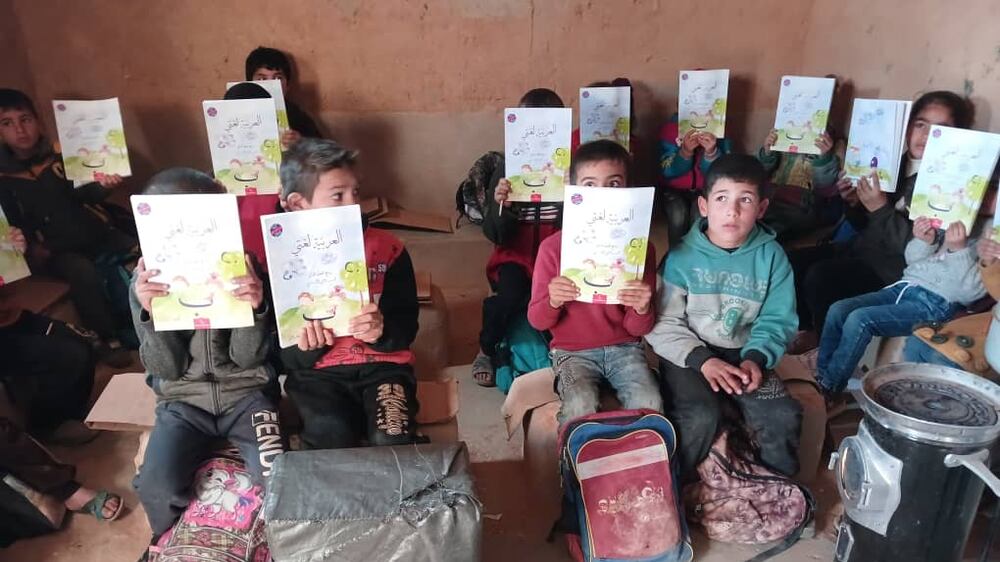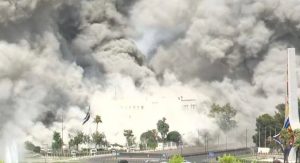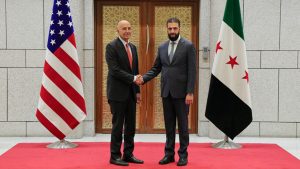The Rukban camp, located in the 55 KM area near the Syrian-Jordan border, is home for over 1508 students ranging from kindergarten to eighth grade. These children represent a generation of Syrian youth who, despite the challenging circumstances of displacement, cling to education as a beacon of hope. However, the state of education in Rukban is dire, and urgent measure needed to address the growing crisis.
The Role of Teachers
There are 60 teachers in Rukban, most of whom work on a voluntary basis. These educators, who serve the camp’s eight schools, receive no salaries and often lack resources necessary to adequately support their students. The absence of financial support for these teachers not only puts their livelihoods at risk but also threatens the continuity of education in the camp. With no external incentives, these educators are constantly battling fatigue and burnout.
Syrian Emergency Task Force (SETF) and Global Justice have extended educational aid, it has not been enough to meet the full scope of needs. Teachers in Rukban require training to effectively implement the curriculum and address the unique challenges of educating displaced students. Many of these teachers themselves have had limited access to professional development, and without proper training, their efforts may not fully meet the educational standard needed to support the children growth.
The Needs for School Supplies and Technological integration
Another significant issue facing the schools in Rukban is the shortage of basic school supplies. Pencils, notebooks, pens, and sharpeners are in limited supply, forcing teachers and students to make do with inadequate materials. These essential tools are critical for the learning process, yet they remain one of the top unmet needs in the camp. Without sufficient supplies, the quality of education suffers, and students miss out on valuable opportunities to engage with their studies in meaningful ways.
Furthermore, there is growing need to introduce technology into classrooms. In an age where digital learning is becoming the norm, students in Rukban remain disconnected from technology advances that could enhance their learning. Access to computer and educational software and even internet connectivity could revolutionize learning outcomes, making education more interactive and accessible. By integrating technology into the curriculum, students could develop critical skills that will be essential for their future, helping bridge the gap between their isolated environment and the outside world.
A Call for Immediate Action
The education crisis in Rukban is not just about the access schools– it is about the quality and quantity of the education provided. The international community and humanitarian organizations must come together to prioritize education in Rukban by ensuring teachers paid and properly trained, introducing technology into classrooms, and supplying students with the materials they need. Education is fundamental right, and for the children of Rukban, it is the key to a future filled with opportunities.
In conclusion, the situation in Rukban demands both attention and resources. These students and their teachers represent a remarkable resilience, but they cannot continue to shoulder the burden alone. Now it is time to act, ensuring that education becomes fundamention upon which the future of Rukban’s children built.









